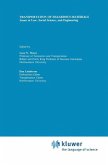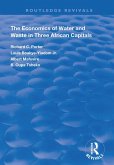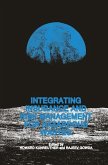-Barbara Harriss-White, University of Oxford
"Krishnan's research makes a compelling case for designing e-waste policies in collaboration with informal processors by recognizing and valuing their system."
-Martha Alter Chen, WIEGO, Harvard University
This book focuses on the economic, political, and cultural factors that make up India's "informal processors," which are the highly networked, multi-generational systems that reuse, repurpose, and otherwise dispose of 80% of India's electronic waste. The research includes insight from more than ninety interviews with forty-nine key stakeholdersworking within India's e-waste processing industry.
Throughout the book, T S Krishnan explores the complexities of the e-waste industry and comprehensively explains the importance of developing context-specific solutions that leverage the inherent strengths of informal processors. The resulting resource offers a counterpoint to mainstream arguments that dismiss the value of expertise from informal processors.
T S Krishnan is an independent scholar with expertise working across disciplines such as supply chain management, ethnography, and sustainability. He has served as a visiting faculty member at the Indian Institute of Management Nagpur and Ashoka University. Krishnan has worked in industries including sales enablement, data science, artificial intelligence, and product management. He received his PhD from the Indian Institute of Management Bangalore.
Dieser Download kann aus rechtlichen Gründen nur mit Rechnungsadresse in A, B, BG, CY, CZ, D, DK, EW, E, FIN, F, GR, HR, H, IRL, I, LT, L, LR, M, NL, PL, P, R, S, SLO, SK ausgeliefert werden.









